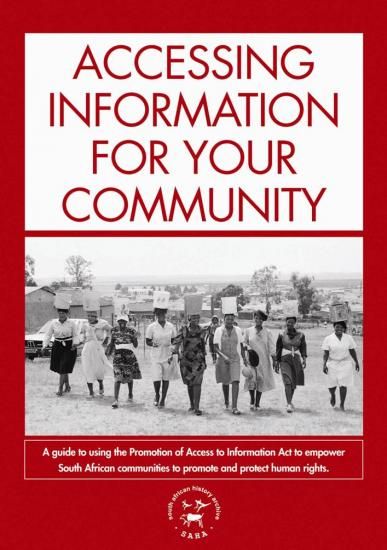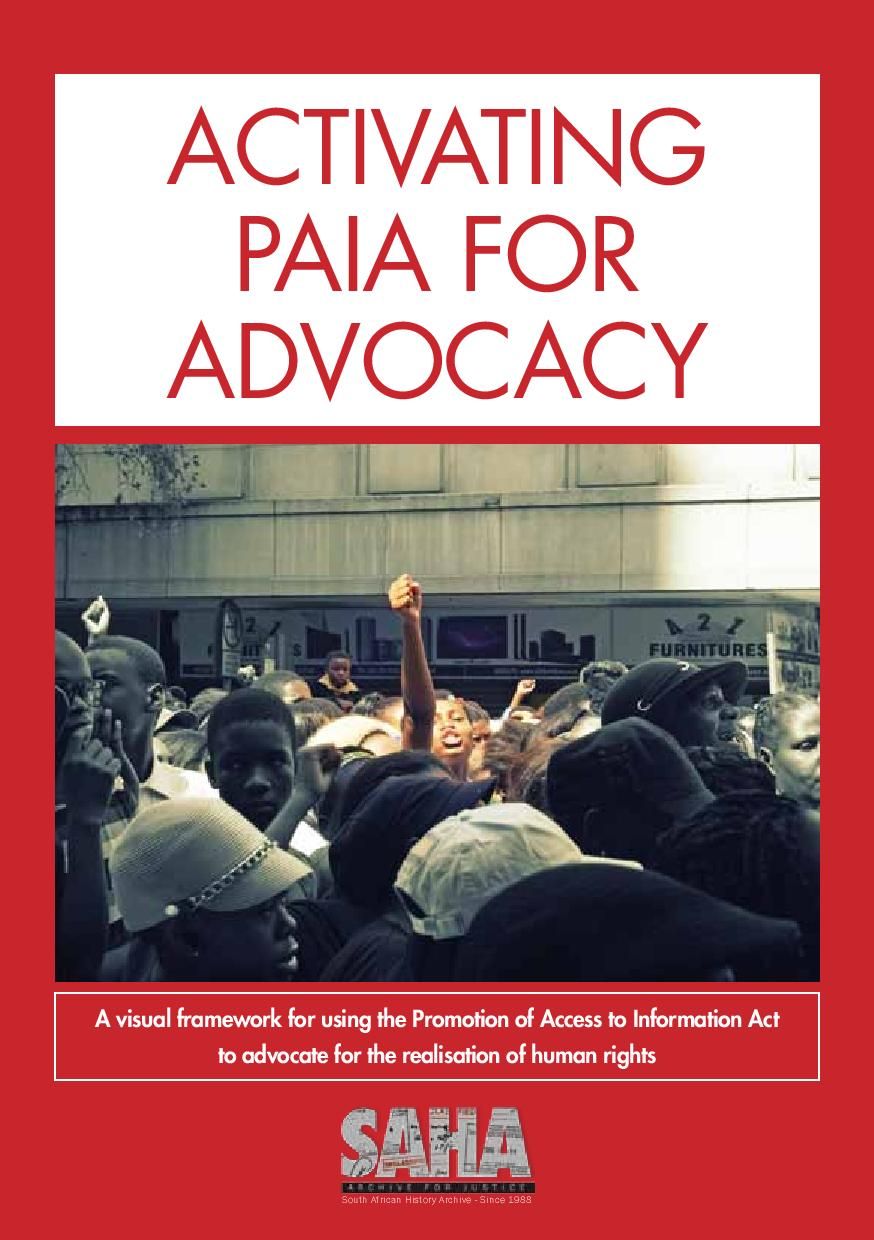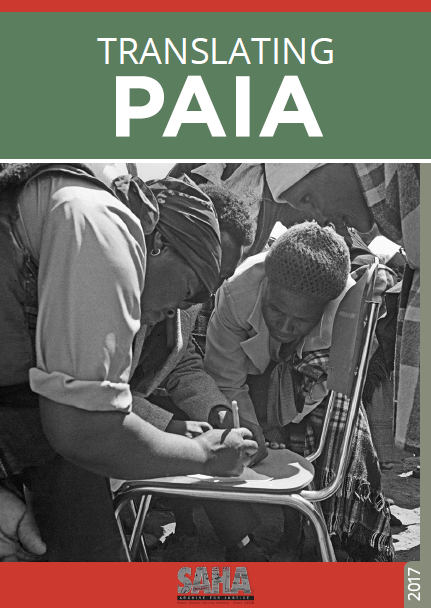Community guides
Accessing Information for your Community
This guide outlines the important role that access to information can play in the achievement of advocacy goals and the protection of rights in South African communities. It examines the legal right to information in South Africa and, using key issues that face many South African communities - access to housing, water, education and employment - illustrates the ways in which access to information can help communities to realise other rights.

Eighteen years after democracy, many historically disadvantaged communities in South Africa continue to face problems of inadequate housing and lack of access to basic services, such as water. Poorly resourced schools mean that children in such communities are receiving a sub-standard education and financial constraints mean limited higher education opportunities for most. These challenges are compounded by high levels of unemployment, with a quarter of the country without work.
Despite the impact of these challenges on everyday family and community life, most communities have little or no information about what the government is doing to address the problems. The guide highlights the way the right to information can be used to empower communities to participate in their democracy and enforce their rights.
Download Accessing Information for your Community
This guide was made possible through the generous support of the Open Society Foundations and Atlantic Philanthropies.
Activating PAIA for Advocacy
This guide is designed to provide a visual framework that aims to assist individuals, communities and organisations in activating information to advocate for changes that will ensure the realisation of their human rights. The guide highlights the role of the Promotion of Access to Information Act, 2000 (PAIA) as a strategic advocacy tool that can be used when advocating for human rights.

The guide provides a visual framework that identifies and sets out five inter-connected parts to developing an advocacy strategy, namely:
- Identifying the people that need to be involved in the advocacy;
- Thinking through the causes and effects of a problem;
- Seeking information about the problem, with PAIA highlighted as one of the key tools available when information cannot be quickly, cheaply and easily accessed;
- Talking through possible solutions to the problem; and
- Taking action to ensure implementation of the preferred solution.
This guide was developed as part of an interactive training workshop programme, and includes a questionnaire, accompanying the visual framework, which is intended to help communities to analyse what information they will need to solve their problems.
Download Activating PAIA for Advocacy
A poster of the basic visual framework has also been developed and can be used as a visual aid, together with the guide, when developing an advocacy strategy.
Download Activating Information for Advocacy poster
SAHA thanks the Open Society Foundation for South Africa and Atlantic Philanthropies for their generous support in the development of these resources.
Translating PAIA


